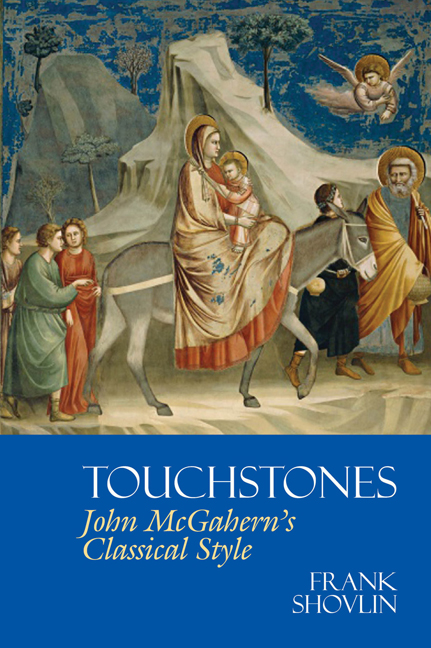Touching Stones: Matthew Arnold and the Canon
Summary
The Sea of Faith
Was once, too, at the full, and round earth's shore
Lay like the folds of a bright girdle furled.
But now I only hear
Its melancholy, long, withdrawing roar,
Retreating, to the breath
Of the night-wind, down the vast edges drear
And naked shingles of the world.
Ah, love, let us be true
To one another! for the world, which seems
To lie before us like a land of dreams,
So various, so beautiful, so new,
Hath really neither joy, nor love, nor light,
Nor certitude, nor peace, nor help for pain;
And we are here as on a darkling plain
Swept with confused alarms of struggle and flight,
Where ignorant armies clash by night.
Matthew Arnold, ‘Dover Beach’Declan Kiberd, John McGahern's one-time pupil and later one of his more astute critics, tells a story in the introduction to McGahern's posthumously collected essays that illustrates nicely the Leitrim writer's reverence for the canon, the classic tradition of English literature:
McGahern was a slow, ardent reader and his relaxed but vigilant attention was a kind of prayer. A friend who called once upon him found an anthology of poetry open at Matthew Arnold's ‘Dover Beach’. Months later, that friend returned, only to find the volume open at the same page. ‘I'm still looking at it,’ McGahern laughed, ‘except that now it has started to look back at me’.
That careful reading, that same fixed attention that McGahern brought to Arnold in order to unlock the meaning of ‘Dover Beach’ is required of every reader who comes to McGahern's work in pursuit of truth and clarity.
McGahern was acutely conscious of the artificiality of art. He was fond of quoting Gustave Flaubert, one of his most consistently present artistic exemplars, on the subject of artistic intercession, stating in the moving television documentary made towards the end of his life, A Private World, that the artist should be like God in nature: everywhere present but nowhere visible. This combination of overarching authorial power with continuous invisibility is achieved by McGahern across his works and makes him a difficult writer to critique.
- Type
- Chapter
- Information
- Touchstones: John McGahern’s Classical Style , pp. 1 - 18Publisher: Liverpool University PressPrint publication year: 2016



